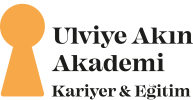EARLY LITERACY

Early Literacy:
- Definition: Early literacy is the basic skills that children acquire before they begin the process of developing reading and writing skills. This includes activities such as getting to know books, listening to stories, and recognizing letters and sounds.
- Importance: Reading and writing skills are the basic skills that enable children to be successful in their academic lives. Establishing the foundations of these skills at an early age allows children to perform better in school and throughout life.
The Role of Early Intervention and Preventive Approach
Early Intervention:
- Advantages: Early intervention prevents these problems from growing by identifying children’s learning difficulties and developmental delays at an early age. It also accelerates children’s development of reading and writing skills. Dr. Ulviye Akın frequently emphasizes this issue.
- Implementation: Various educational programs and activities can be used to provide support to children in the early period to help them gain reading and writing skills.
Preventive Approach:
- Purpose: Planned and systematic interventions to prevent potential reading and writing difficulties. These approaches ensure that children experience fewer problems in their academic careers.
- Application: With early assessments and individualized education programs, potential problems in children’s reading and writing skills are determined in advance and intervened.
Framework Program and Instructional & Cognitive Interventions
Framework Program:
- Definition: Programs created in line with specific goals and standards in education. These programs are organized in accordance with the developmental levels of children.
- Application: Includes teaching methods and activities adapted to the individual needs of the child.
Instructional Interventions:
- Definition: Methods and strategies used to support children’s learning processes.
- Application: Children’s reading and writing skills are supported with various teaching methods such as game-based learning, storytelling, and interactive reading activities.
Cognitive Interventions:
- Definition: Studies carried out to develop the child’s cognitive abilities. This includes cognitive processes such as attention, memory, and problem solving.
- Application: Activities that support cognitive skills such as memory games, attention development activities, and problem solving tasks are carried out.
Phonetic Features of Turkish
Phonetic Features:
- Turkish: Turkish is a language that is read as it is written. Each letter represents a specific sound, and this sound does not change within the word.
- Advantage: This feature makes learning to read and write more systematic and easier than other languages. Children learn and apply letter-sound relationships more easily.
Early Literacy Studies in Preschool
Current Status:
- Limitations: Literacy studies conducted in preschool are generally limited and most of the time, reading and writing skills are left entirely to the first grade of primary school.
- Recommendation: More comprehensive and intensive literacy studies should be conducted at an early age. This ensures that children are better prepared for reading and writing skills when they start primary school.
Academic Key Skills
Reading and Writing Skills:
- Key Skills: Reading and writing form the basis of all academic success. Delays in these skills can negatively affect the child’s success in other academic areas.
- Reading Comprehension: Developing reading skills increases children’s reading comprehension performance. Reading comprehension is a critical skill for academic success.
Correct Intervention Practices
Sound-Letter Awareness:
- Importance: Children’s recognition of sounds and letters is a fundamental step in learning to read and write. This awareness plays a critical role in children’s development of reading and writing skills.
- Implementation: Sound-letter awareness studies conducted with both digital and manual tools help children acquire this skill.
Intervention Program:
- Individualized Approach: An intervention program that focuses on the child’s needs and areas of difficulty can be effective in developing reading skills. This program should be adapted and functionalized according to the child’s individual needs.
Conclusion
Acquiring early literacy skills is critical for children’s academic success. Early intervention and preventive approaches support the development of these skills and prevent possible reading and writing difficulties. The use of digital and manual tools in education can make this process more effective and faster. Intervention programs appropriate to the child’s needs should aim to functionalize reading skills in all their dimensions. These studies conducted at an early age contribute to children becoming more successful and happier individuals in the future.
